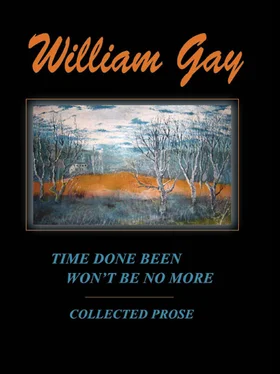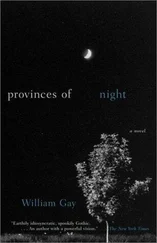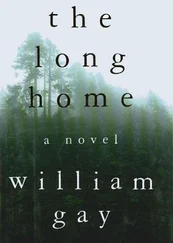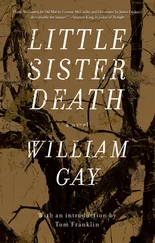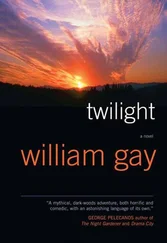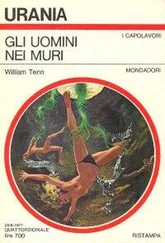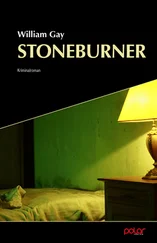Furry was born Walter Lewis in that fabled, near-mythic birthplace, and graveyard, of the blues, Greenwood, Mississippi. Just when is a matter of conjecture; Lewis was prone to altering his past history to suit the needs of the moment (he asserted that he invented the bottleneck style of guitar-playing that Robert Johnson used and that he was a protégé of W.C. Handy). The consensus is that he was born in 1893.
He didn’t tarry long in Greenwood. His family moved to Memphis when he was seven years old. Before he was out of school, he was playing with folks who would one day be hailed as Beale Street legends Will Shade, the Memphis Jug Band, and Handy, the man credited with igniting the first blues craze.
Furry was soon touring Arkansas and Mississippi with the medicine shows that were prevalent in the rural South of that time. By his teens, he was playing the jukes with Memphis Minnie and Blind Lemon Jefferson. He claimed to have learned the rudiments of guitar as a child from a street musician known to him only as Blind Joe. The rest he learned on his own, writing original songs in a tablet, and recasting ragtime pieces and popular songs with lines from the stockpile of interchangeable blues poetry that has been dipped into by everyone from Jimmie Rodgers to Bob Dylan.
In the late 1920’s, Furry recorded twenty-three songs. Thus, Furry was squarely part of the 1927-29 historical musical outpouring that was probably the richest period in American recording. Men like Ralph Peer were scouring the South for talent, but no one had yet figured out what would sell and what wouldn’t. The playing field was momentarily level and everyone had a shot, black bluesmen from the Delta and white string bands from the Carolinas, Georgia, and West Virginia. At least until the Great Depression hit and the record business nearly stopped, and then many musicians went back to doing what they were doing before.
What Furry had been doing before, aside from making music, was working for the city of Memphis. Despite losing a leg in a railroad accident in 1917 (doctors had replaced it with a wooden stump), Lewis got employment in 1922 as a street sweeper, a job he would hold off and on for the next forty-four years.
Those twenty-three recorded songs formed the strongest part of Furry’s musical legacy. Mostly based on the twelve-bar blues pattern and played in open tunings, his songs featured familiar blues motifs that bobbed in and out like debris in turbulent waters, railroads and highways, cops and authority, empty beds, women who cling too tightly or won’t hold on at all and all shot through with sardonic humor and violence that lies around the next bend in the road.
“I believe I’ll buy me a graveyard of my own”, he sings in Furry’s Blues , his tone confiding, as if he’s passing on hard-won knowledge, “I’m gonna kill everybody that have done me wrong.”
Impending violence fuels his songs. Frustration and anger seethe just under the surface and there is a feeling that things could go south at a moment’s notice. “If you want to go to Nashville men and they ain’t got no fare”, he sings, “Cut your good girl’s throat and the judge will send you there”.
When things get too heavy, there’s dark humor: “I went down to the I.C. train, laid my head on the I.C. tracks,” he sings in Cannon Ball Blues. “Seen the I.C. comin’, Lord, and I snatched it back.”
Furry’s masterpiece is Kassie Jones, a long, imaginative reworking of the traditional song about the death of engineer Casey Jones in a 1900 train wreck in Canton, Mississippi. But Furry makes it his own, literally. The song begins typically enough with an account of Casey as a folk hero, but takes a trip to the surreal when Furry himself emerges as a character: Chased to his woman’s gate by the police, welcomed to her folding bed, then on the road again, his name on the back of his shirt, “he’s a natural-born Eastman don’t have to work.”
Driven by Furry’s hypnotic percussive bass strings, the song sounds like something Sam Phillips would have recorded at Sun Studio thirty years later.
In the 1970’s, age had enfeebled his musicianship to the point that he was forced to get by on the tricks and showmanship of his medicine-show days, but, paradoxically, a brief fame touched him. In 1975, he opened in Memphis for the Rolling Stones, and in 1976 Joni Mitchell wrote Furry Sings the Blues about him. He even appeared in a movie that stars Burt Reynolds, W.W. and the Dixie Dancekings.
Furry had attended John Hurt’s funeral in Greenwood, and most of the other country bluesmen were in the ground, too. By the time of his death in 1981, he had outlived most of his contemporaries. The strife and hard times Furry had written about were still around but they were being addressed by a different kind of music. The blues had gone Big City, and the acoustic country blues were practiced mostly by purists and academicians.
Maybe Furry himself said it best, in his reworking of St. Louis Blues, Time done been/Won’t be no more.
WHEN EMISSARIES OF THE BBC showed up at the Ryman Auditorium in 1946 to record performances by country musicians no doubt to allow perplexed Londoners back home to hear what the rustic folks in the colonies considered entertainment. One of the first musicians they spotlighted was the Dixie Dewdrop. That would be Uncle Dave Macon, David Harrison Macon from Rutherford County, Tennessee, already seventy-six years old in 1946 and as unlikely a superstar as country music has ever seen.
But no one at the Opry was surprised. How could they not have chosen him? Who could compare to Uncle Dave? Macon in full-tilt abandon was like a natural force unleashed, and when he got unwound and release arrived it would be like watching destruction from the eye of a hurricane. He buckdanced and flashed his gold-toothed grin and twirled his banjo like a baton, brought it to his shoulder with the neck pointed at the audience and sprayed notes like a musical Gatling gun. His stamping and percussive rapping on his instrument rendered the idea of a rhythm section laughable: You couldn’t duplicate this pandemonium, any effort would be the palest echo of the seemingly infinite energy he expended. Uncle Dave must have been hard on banjos.
He had arrived at the Ryman by a circuitous route, and in his quieter moments of reflection, late at night and winding down and alone in the Nashville Hotel where he finished out his days, he must have pondered the string of coincidences and singularities that had moved his life in so peculiar a direction.
Macon traveled a path that was to become familiar to the rural musicians who made it to the recording studios in the late 1920’s their names are legion. But that path is now lost, it was unique to its time and place and simply does not exist anymore, no one will travel it again.
The Macons were a prosperous family before the Civil War. They owned upward of two thousand acres and various businesses, including distilleries and sawmills. But the cards fell wrong for prosperous farmers in the South, and by the time David Harrison Macon was born in 1870, things weren’t looking so optimistic. Yankee Reconstruction had its foot on the region’s neck and was pushing hard. Dave’s father, John, struggled until 1883, and then decided, like a lot of other folks, that better times lay in the cities instead of the hardscrabble countryside. So he sold the house and what was left of the land, far fewer than two thousand acres, and loaded furniture and children onto the wagon, hitched up the mules, and started out the long sixty miles to Nashville. Dave was thirteen years old.
They went into the hotel business, and this, in retrospect, looks like the making of Uncle Dave the entertainer. The place they ran was the Broadway House. This was a time when a motley of entertainers would play the line of theaters on Broadway in downtown Nashville, and all these traveling performers had to stay somewhere. A lot of them chose the Broadway House, partly because they could use the huge open basement for rehearsals. These were performers of various stripes, jugglers and acrobats and musicians and magicians, animal acts and blackface minstrels and rube comedians.
Читать дальше
